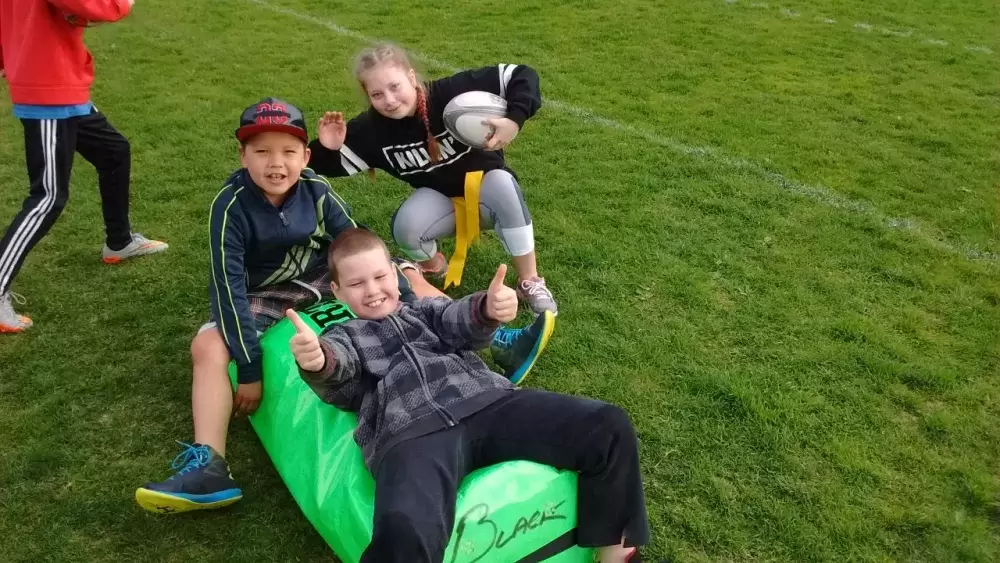The province’s rugby association is putting a new emphasis on getting aboriginal children into the sport, opening up an opportunity this week for youngsters in Port Alberni.
With provincial funding to encourage involvement from First Nations youth, BC Rugby hosts an aboriginal clinic on Tuesday, May 23 at the Black Sheep Rugby Club at 3:30 – 5 p.m.
Tony LaCarte, a development officer with BC Rugby, said the clinic serves as an introduction to the sport, where participants can expect drills that focus on basic rugby skills. The clinic is open to girls and boys aged 7-18.
“One of the strategic goals of BC Rugby was to increase aboriginal participation in rugby,” said LaCarte. “Our new mandate is to grow, develop and manage the sport of rugby in B.C.”
“It’s focused on aboriginal athletes but open to all athletes,” added James Messenger, vice principal of Wood Elementary who coordinates an after-school sports program for the Alberni district. “This funding is targeting aboriginal athletes, so we’re really trying to encourage and make that connection.”
Rugby star Phil Mack is involved in the clinic to help make this connection. Recently retired from international play, Mack played for Canada in the 2015 Rugby World Cup, and has also competed in the Pan American and Commonwealth Games. The seasoned player is a member of the Toquaht First Nation.
“It’s a great role model for the kids to follow,” said Messenger. “Here’s a guy who is one of the world’s best and he started out right where they are, and he’s from right where they are.”
Port Alberni’s Black Sheep Rugby Club has a strong tradition of aboriginal players, said Gio Mussato, who was one of the team’s earliest members. A former principal of Haahuupayak Elementary, Mussato still runs children’s rugby sessions at the school.
“They don’t understand the game as much as they understand basketball, but they’re picking it up quickly,” he said. “Because they’re good athletes, they have an athletic mind and can learn fairly quickly.”
Teamwork as well as respect for officials and the opposition are integral lessons in rugby, say the clinic’s organizers.
“When you have to decide to tackle somebody bigger than you, it involves making a decision that you’re not going to give up. It’s a sport that calls for collaboration, cooperation,” said Mussato. “It’s not like American football where you’re taught to destroy the player. You want to tackle somebody to get the ball; you don’t want to tackle somebody to destroy them. You want to keep the ball moving, and once you’re tackled you let go of the ball and somebody else can pick it up. The whole idea is movement of the ball, working together to achieve goals, and the goal is to score a try.”
“Hopefully they’ll have fun and get hooked on the sport,” added LaCarte. “You’ll introduce more serious rugby later on, but it’s really just about giving them a chance to run around with the ball in their hand and have fun.”







